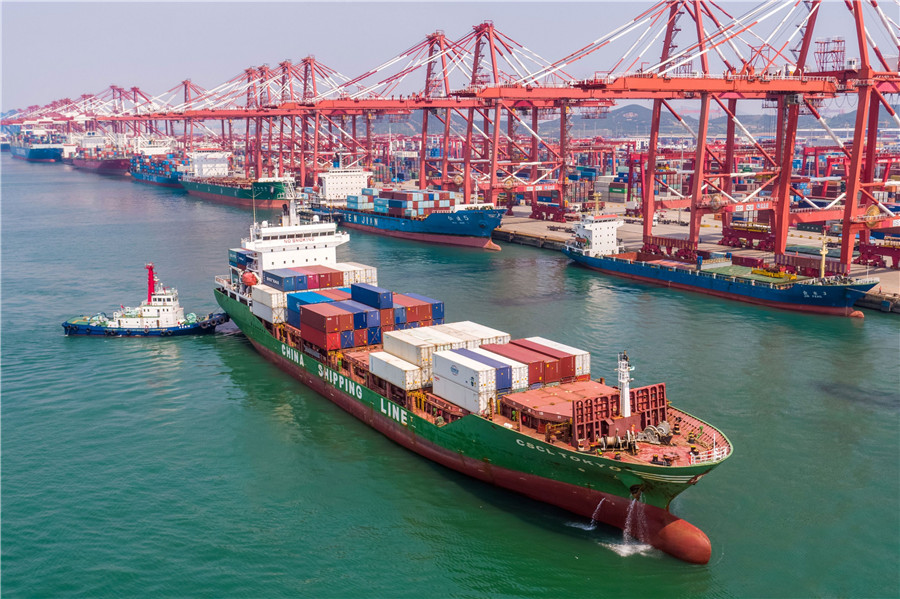China takes steps to stabilize foreign trade, investment


BEIJING -- China will establish new pilot zones for cross-border e-commerce, support the processing trade and host an online Canton Fair to stabilize foreign trade and investment amid the novel coronavirus pandemic (COVID-19), according to an executive meeting of the State Council.
The meeting, presided over by Premier Li Keqiang, also decided to continue preferential tax policies for inclusive financial service and micro-loan companies in a bid to help small- and micro-businesses, self-employed individuals and farmers tide over.
The accelerating spread of the pandemic brought shocks to the global economy and international trade and investment. Authorities at all levels must continue with the opening-up policy and adopt measures to stabilize foreign trade and investment to blunt the pandemic's impacts on the country's economy and especially the job market, the meeting said.
In addition to the 59 cross-border e-commerce pilot zones already set up, China will establish 46 new ones and exempt retail export goods in all pilot zones from value-added tax and consumption tax, while encouraging companies to jointly build and share overseas warehouses.
The meeting urged intensified efforts to push for the development of processing trade and help related companies solve problems, as processing trade accounts for one-fourth of the country's foreign trade.
Due to the spread of the coronavirus pandemic across the globe, China will host the 127th China Import and Export Fair (Canton Fair) online in mid to late June. With the help of advanced information technology, companies from all over the world will be able to display their products and have negotiations online, as well as place orders and do business from home.
Further efforts should be made to smooth international freight channels such as China-Europe freight trains and improve cargo connections in a bid to stabilize global supply chains and fast-track work resumption, said the meeting.
The country will also extend some expired preferential tax policies to the end of 2023 to help small- and micro-businesses, self-employed individuals and farmers tide over, according to the meeting.



































